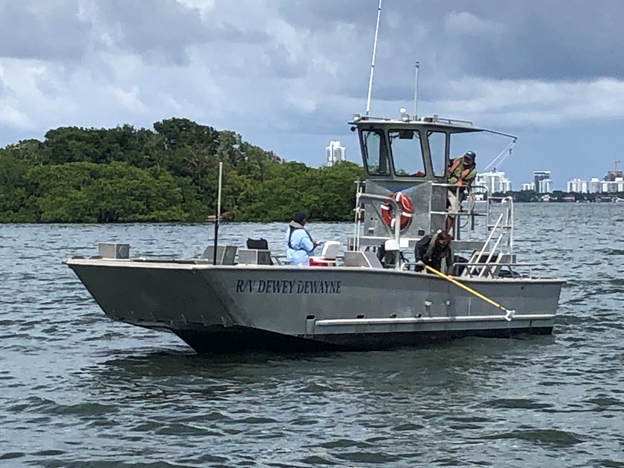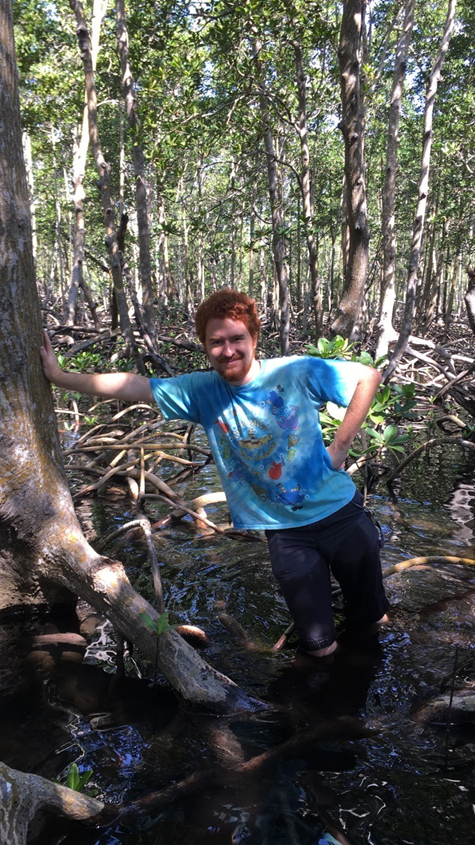Microplastics and UV filters are two environmental contaminants of high concern because of their widespread impact on marine ecosystems. Microplastics are an increasingly common type of pollution resulting from synthetic debris that is broken down into smaller and smaller pieces. These microplastics are not only harmful to individual wildlife, but also hazardous to entire marine ecosystems for the way that their toxic chemicals can bioaccumulate higher up into food webs. Similarly, the chemicals of UV filters found in sunscreens, plastics, paint, and textiles can contribute to coral bleaching.
Steven Landeweer, a graduate fellow with the NSF CREST Center for Aquatic Chemistry and Environment, is working to uncover new information that can help mitigate ocean pollution. Landeweer is using mass spectrometry to develop methods of detecting and quantifying compounds that are common in UV filters, and using this information to monitor concentrations of these contaminants in Florida’s Biscayne Bay. Gathering this information is essential to understanding how these pollutants spread throughout our waterways.
As part of the research, Landeweer is working on the S.A.R.A.H initiative, a collaborative project with the International SeaKeepers Society to combat plastic pollution in marine ecosystems. By providing plastic collection kits to the yachting community, Landeweer will be able to study plastic debris in larger samples of ocean water. In addition to characterizing these samples, he will also look at any organic pollutants that have become bound to the marine plastics.
As the scientific community works to better understand the rapid spread and impacts of environmental contaminants, this research provides valuable information on a few key pieces of the puzzle. Landeweer is developing practical methods to gather more data, in order to help educate communities and support critical legislation on ocean pollution and environmental conservation.
The NSF CREST Center for Aquatic Chemistry and Environment is housed within the Institute of Environment, a Preeminent Program at Florida International University.

